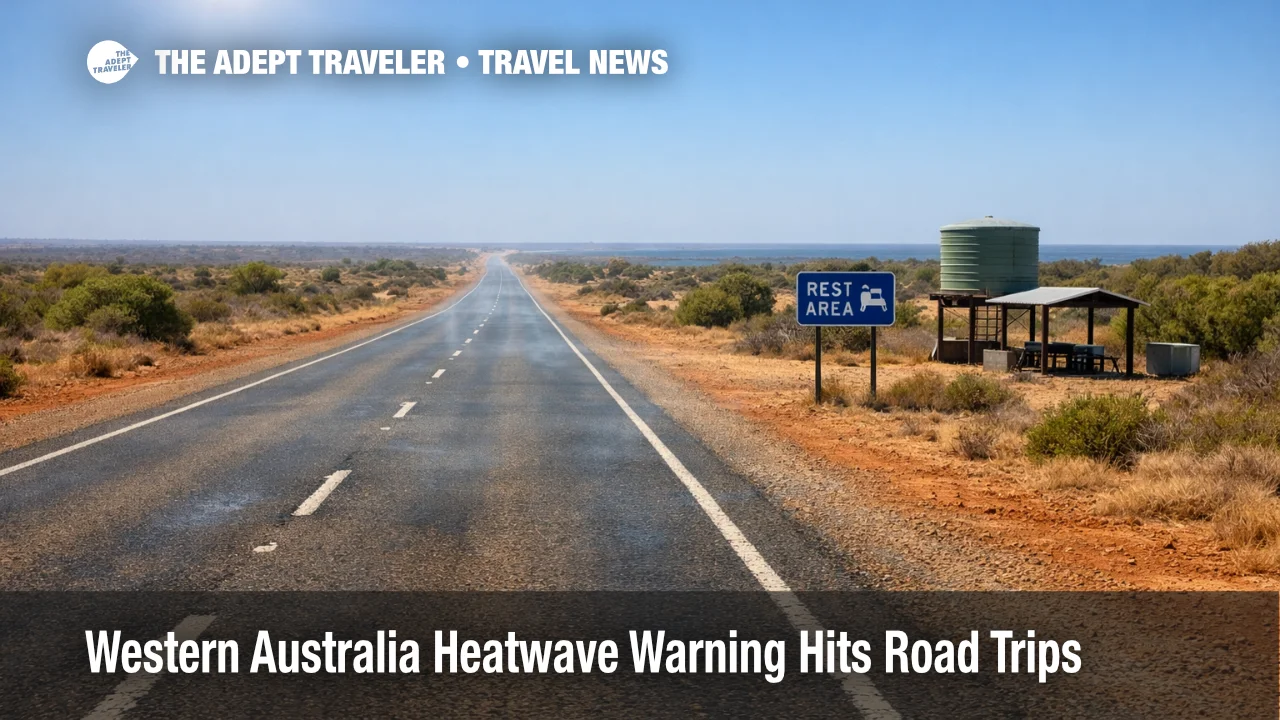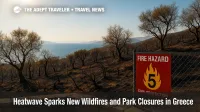Heat Wave
Traveling can be an exhilarating experience filled with moments of discovery and adventure. However, the dynamics of travel can significantly shift when the temperature soars, transforming a simple vacation into an ordeal if not properly managed. When we talk about a 'Heat Wave,' it conjures images of climbing temperatures, relentless sun, and an atmosphere that feels as though it’s pressing down on you. It’s crucial for anyone planning to travel during such extreme weather conditions to be well-prepared and well-informed. Let's delve into how heat waves can affect your travel plans and how you can ensure a safe and enjoyable journey.
Understanding a Heat Wave
A heat wave refers to a prolonged period of excessively hot weather, which may also be accompanied by high humidity. These extreme temperatures can be hazardous to health and often disrupt daily routines and travel plans. Typically, a heat wave is measured relative to the usual weather in the area and the season's normal temperatures. This phenomenon can occur anywhere around the globe but is particularly prevalent in areas that are already known for their warm climates.
Health Risks During a Heat Wave
Prolonged exposure to high temperatures can lead to serious health issues. Heat exhaustion and heatstroke are the most common ailments associated with extreme heat. Symptoms of heat exhaustion include heavy sweating, weakness, dizziness, nausea, and rapid heartbeat. If not treated immediately, it can lead to heatstroke, which is a life-threatening condition characterized by a high body temperature, altered mental state, and potential loss of consciousness.
Staying hydrated is paramount during a heat wave. Dehydration can set in quickly, especially when you're on the move. Make it a habit to carry a water bottle and take frequent sips. Electrolyte solutions or sports drinks can also be beneficial as they help replenish the salts and minerals lost through sweating.
Impact on Transportation
Heat waves can have a significant impact on various modes of transportation. For air travel, extreme heat can affect a plane's performance, potentially leading to delays or cancellations. Hot weather causes air to become less dense, which can affect lift and make it harder for planes to take off. Airports in areas frequently affected by high temperatures often have protocols to manage these conditions, but delays are sometimes unavoidable.
On the ground, cars are also susceptible to the effects of high heat. Tires are at risk of blowouts due to increased pressure from the expanded air inside them. Overheating engines and malfunctioning air conditioning systems can add to the discomfort of road travel. For train travel, extreme heat can cause rails to expand and even buckle, leading to delays and cancellations.
If you’re planning to use public transport, be prepared for potential delays and crowded conditions, as people opt for air-conditioned buses and trains to escape the heat.
Accommodation Adjustments
When selecting accommodations, consider places with reliable air conditioning. Check reviews and amenities to ensure a comfortable stay. It’s also wise to look into options with swimming pools or access to water parks for relief from the heat. Proximity to shaded areas, parks, or bodies of water can offer additional respite.
In more extreme cases, some hotels and guesthouses may offer 'siesta' accommodations, allowing guests to stay cool during the hottest parts of the day and explore more during the cooler mornings and evenings.
Itinerary and Activity Planning
Traveling during a heat wave necessitates thoughtful planning regarding your daily itinerary. Avoid planning outdoor activities during peak sun hours, typically between 10 AM and 4 PM. Instead, use this time for indoor attractions such as museums, galleries, and shopping centers which often have air conditioning. Early morning or late evening excursions can be more bearable and often provide a unique perspective of the destination with fewer crowds.
Wearing appropriate clothing is equally important. Light-colored, loose-fitting clothes made of natural fibers like cotton can help keep you cool. Wide-brimmed hats and UV-protected sunglasses add extra protection against the sun's rays.
Customizing Travel Gadgets and Accessories
There are several gadgets and accessories designed to help you stay cool during a heat wave. Portable fans, cooling towels, and insulated water bottles can make a significant difference. These items are often small and easily packable, making them perfect companions for your travel gear.
Moreover, consider carrying a small first aid kit that includes items like sunblock, aloe vera gel for sunburn, and oral rehydration salts. These items can be invaluable in managing the effects of extreme heat.
Cultural Considerations
Different cultures have various ways of coping with extreme heat, which can also be fascinating learning experiences for travelers. For instance, in Spain and many Latin American countries, the concept of a 'siesta' or afternoon nap is common during the hottest parts of the day. On the other hand, Mediterranean cultures often have late dinners, taking advantage of the cooler evening breeze.
Understanding and respecting local practices can enhance your travel experience and provide practical ways to cope with the heat. Engaging with locals can also offer insider tips on the best ways to stay cool and the best times to visit certain attractions.
Environmental and Ethical Considerations
Extreme heat waves are often exacerbated by climate change, highlighting the importance of sustainable travel practices. Opting for eco-friendly accommodations, reducing waste, and being mindful of your carbon footprint can contribute to mitigating the broader issues at hand.
When visiting natural attractions, stick to designated paths to avoid disturbing the environment. Avoid activities that put additional strain on local resources, such as excessive water usage, especially in areas prone to drought.
Emergency Preparedness
No matter how well you plan, emergencies can still arise. Familiarize yourself with local emergency contacts and identify the nearest medical facilities. Many countries have specific hotlines or emergency numbers for heat-related illnesses.
Additionally, travel insurance that covers medical emergencies caused by extreme weather can provide peace of mind. Being prepared for potential emergencies allows you to respond swiftly and effectively, reducing the risk of adverse outcomes.
In conclusion, while a heat wave can present several challenges to travel, thorough preparation and mindful planning can help ensure a safe and enjoyable journey. Understanding the implications of extreme heat, adjusting your itinerary, and taking necessary precautions can transform a potentially daunting experience into an opportunity for unique exploration and cultural engagement. Remember, the key to successful travel during a heat wave lies in adaptability, awareness, and preparedness.
Southern Cone Heatwave Raises Repeat Travel Disruption Risk

Western Australia Heatwave Warning Hits Road Trips

Australia Heatwave, Tasmania Bushfires Hit Travel

South Africa Severe Thunderstorm And Heat Warnings, Road And Rail Delays Possible

Eurostar Delays Today: Heat Precautions, Network Incidents

111°F Heatwave Disrupts Greece and Türkiye Travel

Heatwave Sparks New Wildfires and Park Closures in Greece

Heat dome to linger over southwest France past August 6

Greece Faces 48 - Hour Heat Alert, Sites Shut, Travel Tweaks

Heat Wave Intensifies Across Southern Europe

Southern Europe Heatwave Disrupts Rail, Triggers Insurance Claims

Acropolis Closure: Heatwave Forces Afternoon Shutdown in Athens

Europe Heat Wave 2025 - Traveler Safety & Schedule Tips

Europe's 2025 Heatwave Is Shifting Summer Travel Patterns for Americans

European Heatwave: Impact on Travel and Safety Tips

